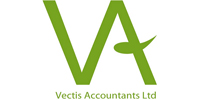Small businesses are bracing themselves for even tougher times ahead as they face an 85% drop in the energy support package as well as rising tax and wages in April.
Poet TS Eliot famously described April as the cruellest month. Small businesses in the UK may well agree, with the British Chambers of Commerce (BCC) warning that rising business costs this month will have a "significant impact" on small firms.
Alex Veitch, BCC director of policy & public affairs, said: "We have been signalling for months that many businesses will struggle to afford their energy bills when financial assistance reduces by 85%, with many receiving a fraction of their original support. Almost half (47%) of firms say paying bills will be difficult from [April] onwards.
"Along with the reduction in energy support, businesses are facing several other changes in the business environment ... Corporation tax is increasing, as is the national living wage, while a number of firms will see their business rates change due to revaluations."
The BCC is calling on the government to increase Ofgem's power to strengthen protection for businesses in the energy market. "The energy crisis faced by firms and households are two sides of the same coin," said Veitch. "Yet, non-domestic customers do not enjoy the same protection as households."
Top concerns for small businesses in 2023
A survey of UK finance brokers by small business lender Iwoca has found that one-third of them say their SME clients are most concerned about rising business running costs. The findings indicate that the top SME concerns in 2023 are:
- Increased business running costs (32%);
- Recession (12%);
- Having to close their business (11%);
- Higher interest rates (11%);
- Access to finance (9%);
- Ability to hire or retain staff (7%).
Colin Goldstein, commercial growth director at Iwoca, said: "Whilst forecasts tell a more positive than expected story for the UK economy this year, the reality on the ground for many SMEs will still be difficult, characterised by high costs and reduced consumer spending."
SMEs grappling with rising bad debt
Also this month, Bibby Financial Services has highlighted the issue of bad debt issues facing UK small businesses as supply chains are hit by rising insolvencies. It reports that almost half of SMEs (47%) have seen at least one business customer cease to trade in the past six months and a quarter (25%) have seen three or more customers become insolvent. Government data shows that insolvencies in February jumped 17% compared to the same time last year.
As a result, the average bad debt amongst UK SMEs has increased by 61% - from £10,329 in Spring 2022, to £16,641 today. Currently, around 1.5 million (around 27%) of SMEs are struggling with this issue.
"Rising insolvencies are causing huge ripple effects throughout supply chains across the country, leading to greater levels of bad debt for small and medium-sized businesses. Combined with the rising cost of borrowing, this presents a significant and very real threat to the survival of many SMEs today." Derek Ryan, UK managing director of Bibby Financial Services
Six in ten businesses (60%) also say it's taking longer for customers to pay their invoices in full compared to a year ago, and 29% are worried about how long it's taking for invoices to be paid. Today, SMEs each have an average £68,413 owed to them in unpaid invoices.
Written by Rachel Miller.
